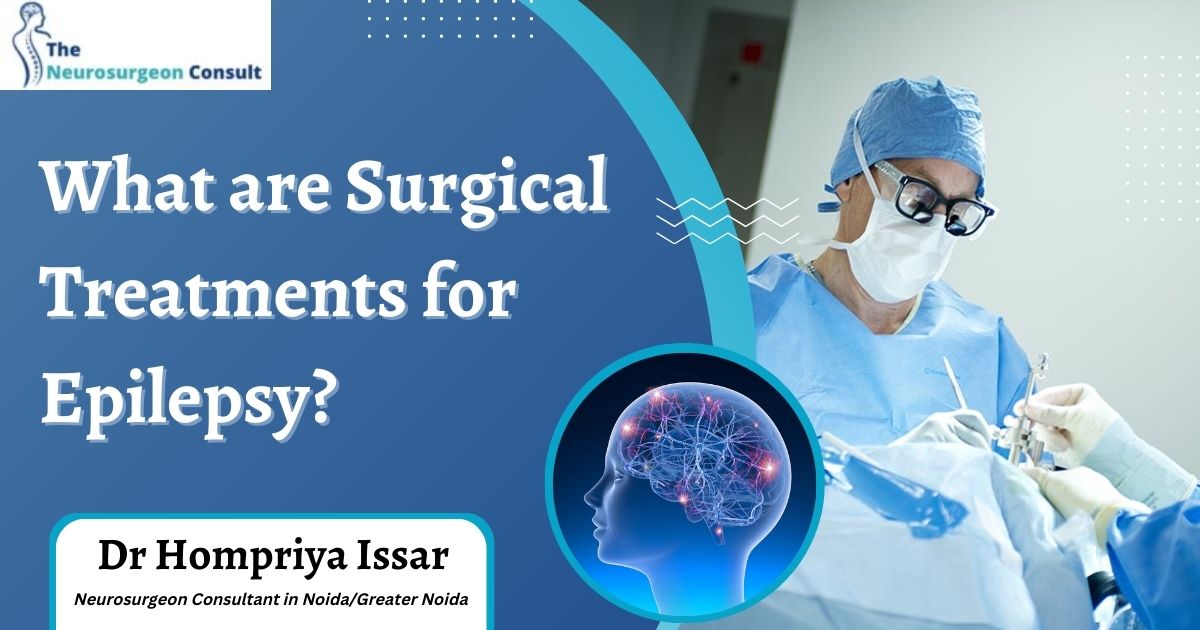
Epilepsy is characterized by recurrent seizures, which can cause physical, emotional, and social problems. While there are many medications available to treat epilepsy, not all patients respond to these treatments. For some patients, surgery may be necessary to control seizures. In this blog post, we will discuss surgical treatments for epilepsy according to the Neurosurgeon Consultant in Noida/Greater Noida.
Epilepsy surgery is a type of neurosurgery that involves removing the part of the brain that is causing seizures.
1. Focal Resection
Focal resection involves removing the part of the brain that is responsible for seizures. This type of surgery is only performed when the seizure focus is located in a specific area of the brain. The success rate of focal resection surgery is around 60-70%, and it is most effective for patients with temporal lobe epilepsy.
2. Corpus Callosotomy
Corpus callosotomy surgery is performed when the seizures originate in both hemispheres of the brain. Corpus callosotomy is usually reserved for patients with severe epilepsy who have not responded to other treatments.
3. Multiple Subpial Transection
Multiple subpial transections are a type of surgery that involves making small cuts in the outer layer of the brain. This surgery is used when the seizure focus is located in an area of the brain that cannot be removed without causing significant damage. Multiple subpial transections is not a cure for epilepsy, but it can reduce the frequency and severity of seizures.
4. Vagus Nerve Stimulation
Vagus nerve stimulation is a type of surgery that involves implanting a device under the skin of the chest that sends electrical signals to the vagus nerve. The vagus nerve is responsible for controlling many functions in the body, including the heart rate and breathing. Vagus nerve stimulation can reduce the frequency and severity of seizures in some patients, but it is not a cure for epilepsy.
5. Deep Brain Stimulation
Deep brain stimulation is a type of surgery that involves implanting electrodes in the brain that send electrical signals to the areas that are responsible for seizures. This surgery is still in the experimental stage, and it is only performed on a small number of patients.
Conclusion
Surgical treatments for epilepsy can be effective for patients who do not respond to medications. The type of surgery that is recommended will depend on the location and severity of the seizures, as well as the patient’s overall health. While surgery can be successful in reducing or eliminating seizures, it is not a cure for epilepsy, and patients may still require medication to control their symptoms. If you are looking for the top Neurosurgeon in Noida, then contact Dr. Hompriya Issar.